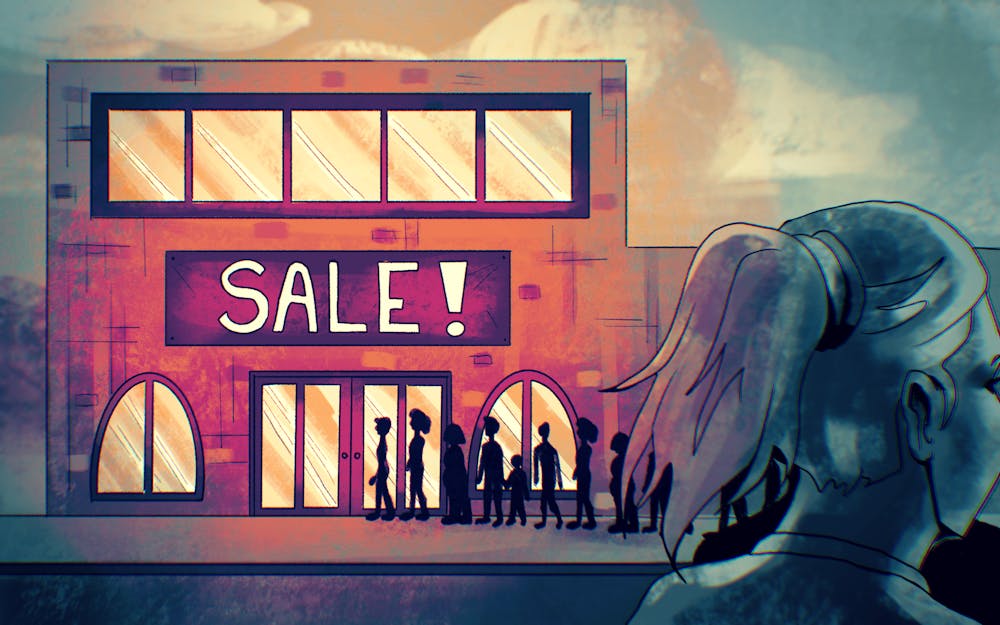Black Friday is not what it used to be.
As I went through racks and racks of clothes at H&M this Black Friday, I realized the 20% off and buy-one-get-one sale wasn’t worth it. I noticed how much this holiday has changed over the years. Black Friday isn’t one day anymore. What used to be a single day of incredible deals now spans the whole month of November with sales that are barely worth it. In fact, a Wallet Hub analysis shows the average discount has gone down. Of course, there are some exceptions, and I still bought things I didn’t necessarily need because they were on sale.
While Black Friday is heavily directed towards the idea of “saving money” there are a lot of negatives to this day. Overspending, unethical business practices and overconsumption are just a few.
Now that Black Friday is over, many of us might be dealing with the guilt of overspending. While there isn’t really a way to reverse your purchases unless you return them, which isn’t much fun, there's a few things to keep in mind for next year.
There is a theory that retailers will up their prices to put them on sale so buyers will think they’re getting a deal when they’re really buying it for the typical price. Companies are known to be greedy; what are they doing, if it isn’t for the money? You may think inflation is to blame, but it has been going down consistently in the last year. While a sale is always nice to see, is it necessary to have a set day of sales that encourages buyers to make impulsive purchases?
Black Friday causes buyers to purchase things they don’t need, just to forget about them shortly after. A lot of retailers put out cheaply and poorly made items which, in the end, aren’t sustainable either. Obviously, overconsumption in the clothing industry is a large issue and Black Friday just adds to it. It’s a day –– or now a month –– to give people a good excuse to buy things they never knew they needed and still don’t need.
Larger retailers have a much easier time putting out sales on their products because of their resources, which a lot of times are unethical. These resources include factories, poor working conditions, sweatshops and more. Smaller businesses can’t put out these sales, and, in turn, risk losing customers even though their products are often better quality. We should aim to support small businesses over these large retailers often full of unethical business practices.
There are many ways to combat overconsumption and to remain sustainable leading up to Black Friday. You can make a list of what you need with the prices to make sure you aren’t buying unnecessary items and ensure you’re getting a deal and saving money. Set a budget. Who doesn’t love buying themselves something they don’t necessarily need for the fun of it? Setting a budget makes sure this spending doesn’t get too out of hand. Black Friday is meant to give off the idea you are saving money by purchasing all these on-sale items, but if you’re buying it for no reason, you’re losing money.
With all these negatives there are, of course, some positives. A sale is a sale regardless, and if it's something you need or has been on your list for a while, Black Friday is surely a good time to buy it. It’s the difference between “need" and “think you need." If you’re putting thought into your purchases and putting a little research into them beforehand, shopping during Black Friday won’t do too much harm. Black Friday is an especially great time to purchase gifts for friends and family before the holidays!
All this being said, just be mindful of your purchases. Next Black Friday, think about the quality and longevity of the item.
Faith Badgley (she/her) is a freshman studying media advertising.






